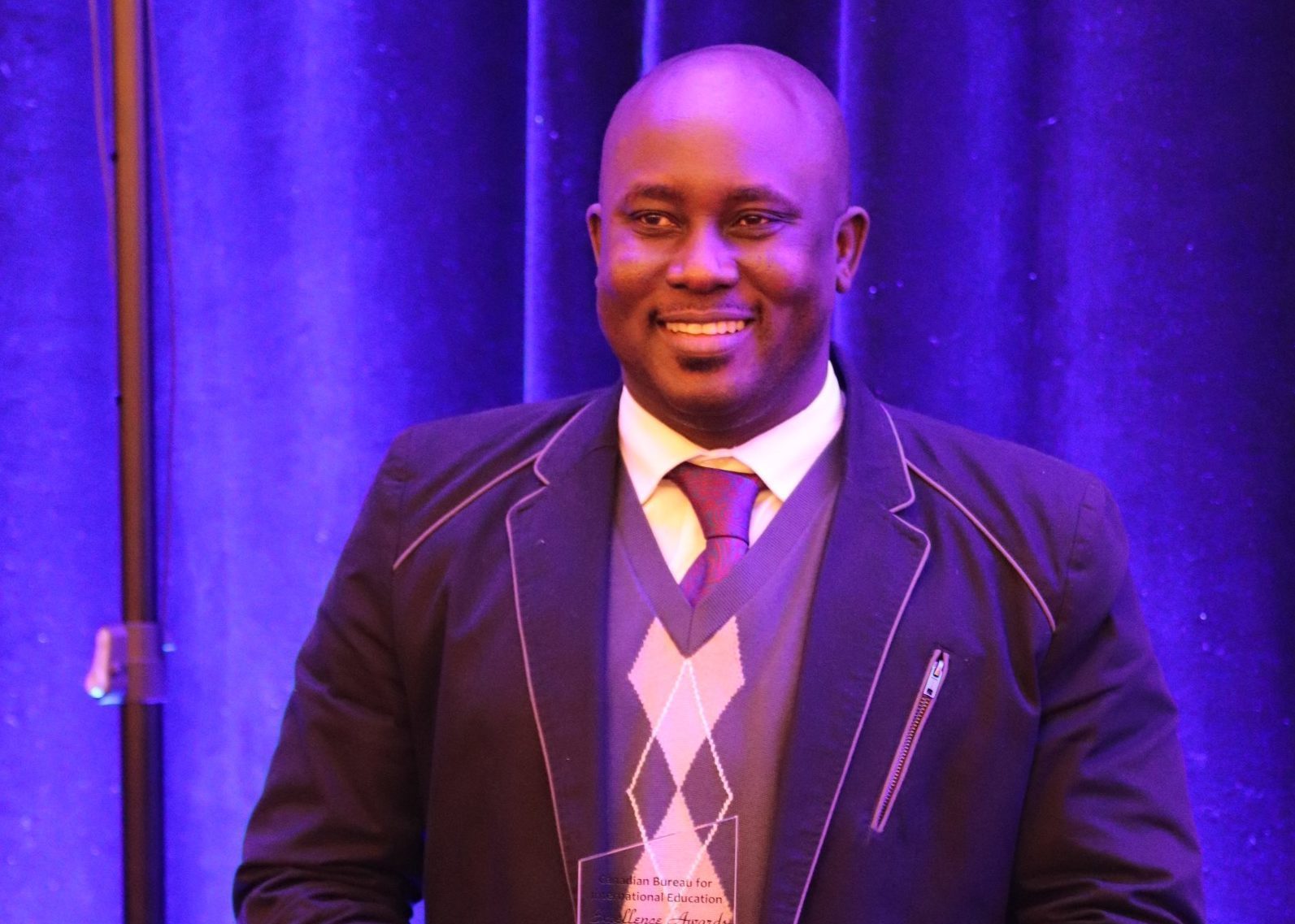
One evening in early September last year, Pius Adesanmi, telephoned me frantically from his base in Ontario. He had been calling for days and due to my excessively busy schedule at the time and the time difference between Canada and Nigeria, we missed each other repeatedly. He would call while I was asleep, and I would do the same while he was perhaps dreaming away in Ontario.
In frustration, the man I called Akowe (Book man), left a message for me on WhatsApp: “O ga o. Olorun a fun alagbara yin ni suuru o.” (May God give the powerful the patience to be gentle with the masses). He was tactically and wittingly and proverbially reminding me that my editor-in-chief job was making me more and more unavailable to my friends.
I started calling Pius Akowe in April 2012 after he delivered a funny, brilliant and illuminating keynote at the African Literature Association in Dallas. At that event, the writer had cracked ribs when he narrated how his uneducated palmwine tapper in his native Isanlu, perched at the neck of a tree, would telephone him with a Blackberry to announce that his regular supply of palmwine would be delayed.
“Akowe, mo ti gbe de o,” (Book man, I’ve brought your wine), the tapper would say anytime he arrived the professor’s home, Pius wrote in the keynote entitled: “Face Me, I Book You: Writing Africa’s Agency in the Age of the Netizen.”
So from the day I read that piece, I began calling Pius Akowe. I would say, “Akowe, e tun tide” (Book man, you have come again) whenever he telephoned me. He would laugh animatedly, and respond: Musikilu Oniroyin agbaye, mo ti de o (Musikilu the global journalist, I have come again o). He would then launch into the real reason for his call.
I returned Pius’ call that day last September, and he updated me on his recovery. It was then about two months since he had a ghastly accident in Nigeria, and was evacuated to Canada. He had been away from work and from his column for PREMIUM TIMES and from social media. I convinced the professor to grant us an interview. He agreed. He wanted it done on the telephone, but I told him WhatsApp was better. He agreed.
But two days later he left me a message: “Musikilu can we do the interview by email instead? Won’t be easy for me to type answers here (WhatsApp).”
“If you insist,” I responded. “But it’s better here. It allows for follow-up questions.”
Pius: Ok. But my responses will be slow in coming o. U know Naija has adapted u people to doing serious work in certain conditions ?
Me: Yeah.. it can be slow. But it’s better.
As agreed, both of us showed up on WhatsApp at the agreed time for the interview.
“Ok, fire the questions,” the professor said on arrival on September 17. “Today makes it exactly two months since the accident so we should start.”
The interview you are about to read, conducted between September 17 and November 17, was never concluded. Pius was as busy as a bee. He would disappear for weeks and then for months. I was hoping we would complete it this March. But my Akowe slipped into mortality, devastating everyone who encountered him in person or through his exceptional work.
Below, for posterity, is what appears his last extensive media interview on earth.
PT: You have been out of circulation for two months since you had a car crash. How has life been so far? How are you recovering? What has life been not being able to tweet, Facebook and write your column for PREMIUM TIMES?
PIUS ADESANMI: Thank you very much. It’s been a very long and tough battle to recovery. The car crash was pretty serious and I still don’t know how I made it out alive. It was after my medical evacuation to Canada that I came to terms with the full extent of my injuries. It has been one complication after another since then. It has also taken quite an emotional toll. I’m still doing intense physiotherapy. Of course, I’ve missed life in the public trenches of Nigeriana. I’ve missed my readers and followers in the public sphere. I’ve missed my column. I’ve missed my Facebook and Twitter communities. Not being able to engage at this critical conjuncture in the life of our nation has been tough. However, my accident taught me one lesson: only the living can fight for Nigeria.
PT: How close are you to full recovery? When are you likely back to work and to travels?
PIUS ADESANMI: You know, I’ve started to write a book about this entire ordeal so I should be careful not to give too much away to Premium Times in an interview in order not to incur the wrath of my publisher, Premium Times Books?.
On a serious note though, I am hoping to be fully back to work and travels before the end of the year. I still have three problem areas: my right leg which was nearly amputated because my injuries were badly infected in Nigeria before I was evacuated to Canada, my right wrist and right shoulder also suffered ligament and nerve damage.
As I heal, I am eager to return to work and travel. You know, this accident happened in July in Nigeria. That was my fifth working trip to Africa this year. I’d been to Kenya (twice), Ghana (twice), and South Africa before Nigeria nearly got me. Since the accident, I’ve cancelled lecture trips to South Africa, Ghana, and France. I was in fact on my way to an African Union consultative meeting in Senegal when the accident happened so, obviously, I didn’t make it to Dakar. So, I am keen to get back to life as a peripatetic public intellectual.
PT: Sorry about the troubles this accident has caused you. I recall you were returning from a training tour when it happened. It was an emergency. Hope Nigeria did not do badly evacuating you and driver from the crash site. And then stabilising you.
PIUS ADESANMI: If you think of Nigeria as a system, as a state in a social contract with the citizen, then, obviously she failed me tragically and nearly killed me. But is that not the story, the personal tragedy of every Nigerian? That we have not been able to create even the most rudimentary forms of civilizational frameworks to secure our lives in the 21st century. I spent the first five hours after the accident in what is said to be the emergency unit of the general hospital in Oyo. If you put pigs in such a filthy environment in Canada, no, Canada is too much, make it Ghana, if you put pigs in such a place in Ghana, you’d go to jail for animal cruelty. That is where Nigeria puts her ordinary people in “hospitals” all over the country. As I said, my injuries were so badly infected in that filthy hospital environment in Oyo that I nearly lost my leg when I got to Canada.
PT: Hope this incident will not slow your commitment to Nigeria, your country of birth. The country that nurtured you and then exported to the world to rise, shine and explode.
PIUS ADESANMI: I am in an abusive relationship with Nigeria. No experience, no matter how horrific, can reduce my commitment to Nigeria. Nigeria is that malevolent, abusive, beastly husband who is physically violent, beats and hurts you but you remain in that relationship and people wonder why.
Well, you know that Nigeria’s beastly, cannibalistic nature (she feeds on her own ordinary citizens) is the handiwork of a few. The road that nearly claimed me is the handiwork of the visionless animals in the political leadership of the country. To reduce my commitment is to surrender to our enemies in the leadership. As I always say, Nigeria is a struggle for meaning and we must not allow the filthy political leadership to have the last word in that argument.
PT: Again, we are sorry about all you went through. We thank God you are alive and recovering. The last time we interviewed you, you agonized about those kinds of situations ordinary folks go through everyday. I recall you lamenting that your social activism was not making an impact. You said you were considering running for political office to aggressively push for change. Is that plan still alive?
PIUS ADESANMI: I think you are missing out on some of the nuances I teased out in my response to that particular question in the interview. I believe it was in specific reference to a political appointment. I recall saying that I wanted no such thing. Remember it was even still early days in the Buhari administration when Buhari’s cluelessness, incompetence, and irredeemable nepotism were not as manifest as they turned out to be.
I said I was not out for a political appointment precisely because we have a certain depraved national culture which makes what ought to be a transient phase of service in a citizen’s life become a shameful stage of accumulation and conspicuous consumption. This is what we mean when we say a person has arrived or God has blessed the person.
A political appointment becomes our singular indicator of success. Here I am for instance. Without being immodest, I’ve been one of Nigeria’s most prominent academic experts in my generation for over a decade now, highly in demand in Universities in North America, Europe and all over Africa. I average 30 keynote lectures per year across continents. I won the Penguin Prize for African Writing in 2010. Yet a Nigerian will look at me and consider a political appointment “a promotion”.
Here, at my level, colleagues who accept political appointments see it as a demotion. It is a sacrifice they make for the collective. I said I aspired to be one of the very few Nigerian public intellectuals to change the Nigerian perception of appointments as “arrival” instead of service. I want no part in the culture of arrivism. If you want me to address the part about the limitations of activism, I am happy to do that.
You may be interested

My Goal Was To Achieve Success With Ten Hag At Man United –De Ligt
Webby - November 14, 2024Netherlands international Matthijs de Ligt has suggested Erik ten Hag didn’t get the breaks he needed to keep his job…

I Want To Take My Game To New Level –Lookman
Webby - November 13, 2024Super Eagles winger Ademola Lookman has reiterated his commitment to take his game to the next level.The Nigerian international, who…

AFCON 2025Q: Benin Republic Hit By Another Injury Blow
Webby - November 13, 2024Benin Republic will be without two more players for their 2025 Africa Cup of Nations qualifying matches against Nigeria and…







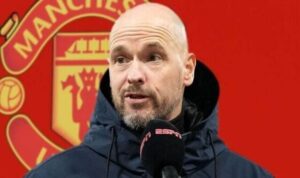
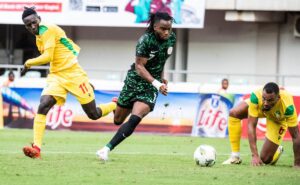
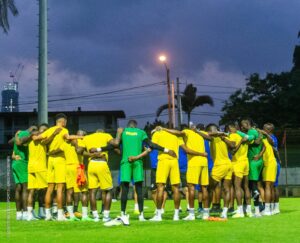




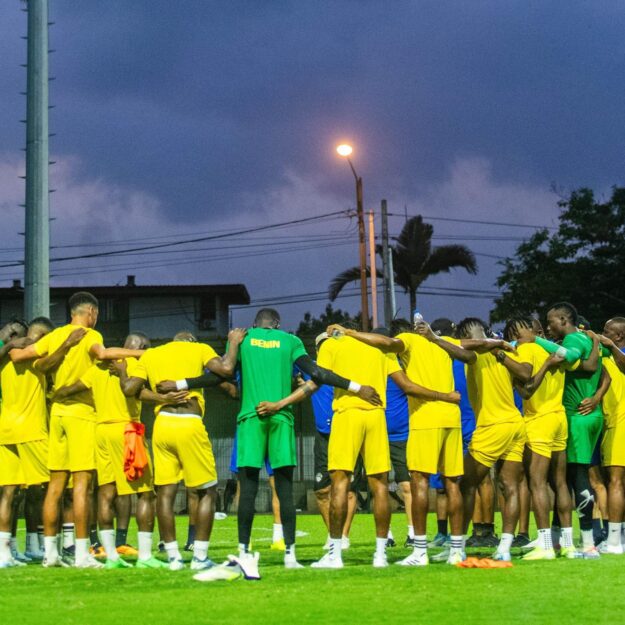



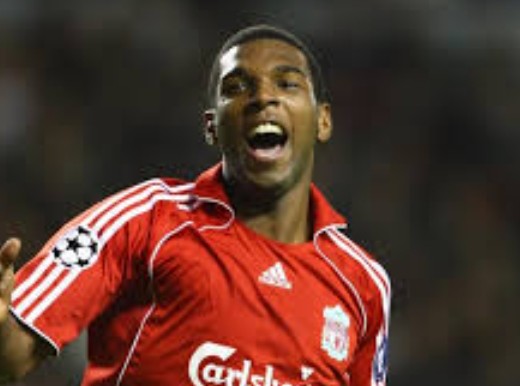


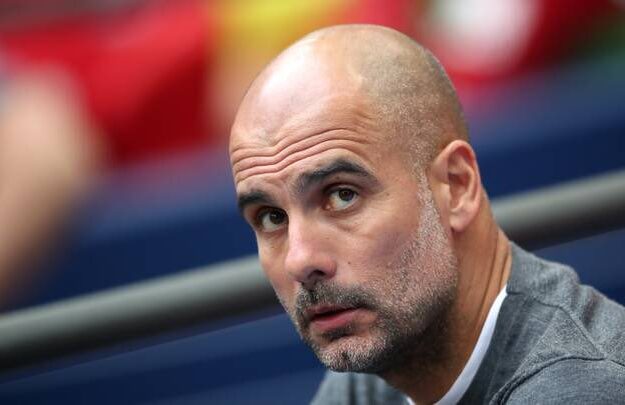

![American Pastor, David Wilson Seen Eating The Box Of Woman Who Isn’t His Wife [Video]](https://onlinenigeria.com/wp-content/uploads/2019/10/american-pastor-david-wilson-seen-eating-the-box-of-woman-who-isnt-his-wife-video-150x150.jpg)









